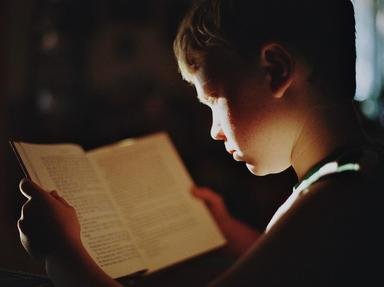Quiz Answer Key and Fun Facts
1. Which author of an epic novel about the Napoleonic Wars once famously described England's national poet William Shakespeare as "a fourth-rate artist whose powers of characterisation are nil"?
2. Shakespeare was sometimes snarled at in his own day as well. What is the title of the scurrilous pamphlet of 1592 written by the ailing minor playwright Robert Greene, in which he bitterly attacks his up-and-coming rivals on the London theatre scene, most notably Shakespeare?
3. Going back in time, which poetic genre (popular in Viking literature) involved two sharp-tongued bards hurling intricate invective at one another in a contest of insults?
4. Which one of his enemies, who was bisexual, did Alexander Pope in the 1700s vindictively christen "Sporus", after one of the Emperor Nero's favourite homosexuals?
5. Which Romantic poem by a contemporary of his did Lord Byron attack for its "incomprehensibity", adding with a pun on the word "story" that "he who understands it would be able/To add a story to the Tower of Babel"?
6. It's time to bring on the novelists. Which one of these derogatory remarks did Mark Twain *not* make about his English "bÍte noire", Jane Austen?
7. Which Catholic writer - probably best known today for his "Father Brown" stories - described Victorian novelist Thomas Hardy unflatteringly as "the village atheist blaspheming over the village idiot"?
8. Which famous Irish writer said of another famous Irish writer, "Such a colossal self-conceit with such a Lilliputian literary genius I never saw combined in one person"?
9. Who, according to the fiery Cambridge English don F.R.Leavis, was "not only not an intellectual, but intellectually as undistinguished as it is possible to be...as a novelist he doesn't begin to exist"?
10. Which twentieth-century English poet and critic (whose third wife, Jane, was a well-known author of cookery books) wrote a poem in which - with great distaste - he described a fairly unedifying collection of post-1945 British media people before commenting: "When all these bleeders are dead and gone,/The drains, like the river, will still run on"?
Source: Author
londoneye98
This quiz was reviewed by FunTrivia editor
looney_tunes before going online.
Any errors found in FunTrivia content are routinely corrected through our feedback system.

